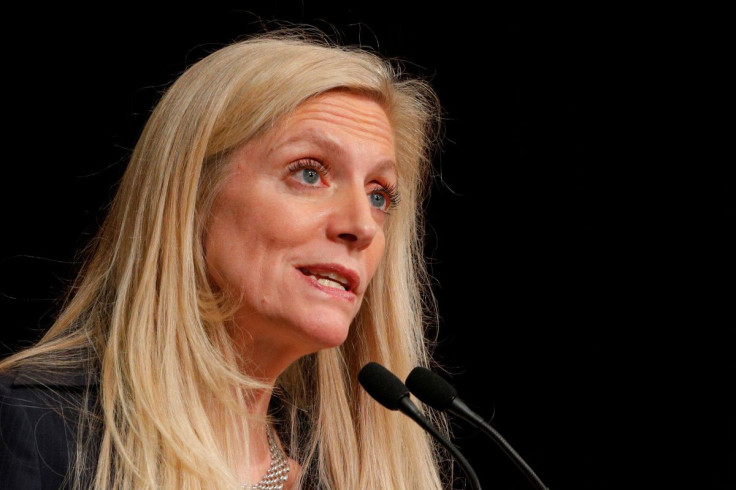Fed's Brainard Sees Methodical Rate Hikes, Rapid Balance Sheet Shrinkage

Federal Reserve Governor Lael Brainard on Tuesday said she expects methodical interest rate increases and rapid reductions to the Fed's balance sheet to bring U.S. monetary policy to a "more neutral position" later this year, with further tightening to follow as needed.
"It is of paramount importance to get inflation down," Brainard said in remarks prepared for delivery to a conference at the Minneapolis Fed. "Accordingly, the (Fed's policysetting) committee will continue tightening monetary policy methodically through a series of interest rate increases and by starting to reduce the balance sheet at a rapid pace as soon as our May meeting."
The Fed will quickly ramp up reductions to its nearly $9 trillion balance sheet to a "considerably" more rapid pace of runoff than the last time the Fed shrank its holdings back in 2017-2019, Brainard said.
That balance sheet shrinkage, combined with a series of Fed rate hikes, "will contribute to monetary policy tightening over and above the expected increases in the policy rate reflected in market pricing and the Committee's Summary of Economic Projections."
Brainard's remarks are her first since the Fed last month raised rates for the first time in three years, and released policymaker projections for the policy rate to end the year in a range of 1.75%-2%.
Markets see the Fed moving faster, bringing the rate to 2.5%-2.75% by the end of this year and above the 2.4% level that most Fed policymakers view as "neutral."
The Fed on Wednesday releases minutes of its March meeting that are expected to provide fresh details on the pace and scope of the Fed's plans to reduce its bond holdings.
"Given that the recovery has been considerably stronger and faster than in the previous cycle, I expect the balance sheet to shrink considerably more rapidly than in the previous recovery, with significantly larger caps and a much shorter period to phase in the maximum caps compared with 2017-19," Brainard said.
The Fed targets 2% inflation, as measured by the personal consumption expenditures price index. In February the PCE price index was up 6.4% from a year earlier.
Brainard said she sees upside risks to inflation from Russia's invasion of Ukraine, and noted that COVID lockdowns in China could worse supply chain bottlenecks that have kept upward pressure on prices.
And though the geopolitical events could pose risks to growth, she noted, the U.S economy has considerable momentum and the labor market is strong.
Unemployment last month fell to 3.6%, just a hair above its pre-pandemic level.
The Fed's signaling on policy has already tightened financial conditions, Brainard said, with mortgage rates up a full percentage point in the past few months.
"Looking forward, at every meeting, we will have the opportunity to calibrate the appropriate pace of firming through the policy rate to reflect what the incoming data tell us about the outlook and the balance of risks," she said.
© Copyright Thomson Reuters 2024. All rights reserved.




















